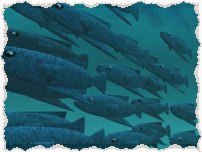Donald Woods... a Personal View
Created | Updated Jul 11, 2003

I first meet Donald Woods across a chessboard in a
small Methodist Church hall in Surbiton, Surrey,
England. Initially I didn't connect the name with the
man whose flight from the Apartheid regime is the
subject of Richard Attenborough's Academy Award
nominated 1987 film Cry Freedom. The man I
played chess with for Surbiton Chess Club was an
unassuming, humble man happy to live his life in a
quiet suburban setting. Yet he had been a well known
and respected journalist and human rights campaigner
in his homeland before being hounded out.
Donald was born in Elliotdale, Transkei in 1933,
approximately 20 miles from the birthplace of Nelson
Mandela. He was a fifth generation South African his
great-great-grandfather emigrating from Britain in
1820. He went to study law at Cape Town university but
left without a degree as journalism held more appeal
to the young Donald and he started work on the East
London Daily Dispatch, the paper he would
eventually edit.
In 1957 he was stood for Parliament on an
anti-racial ticket for the Union Federal Party. He was
heavily defeated and returned to journalism working in
Cardiff, Toronto and London before rejoining the
Dispatch in 1960. Five years later he became
the youngest editor in South Africa when he took over
the reigns of the paper where he started as a
journalist.
Woods, as can be seen by his political allegiance
was a liberal, but it wasn't until he first meet Steve
Biko that he became fully committed to cause of Human
Rights in South Africa and radical in his approach to
handling this issue. Initially he had been a critic of
the Black Consciousness movements, claiming that they
practised racism in reverse. However when a black
woman Mamphela Ramphele entered his office to ask why
he was criticising Biko and demanded that he visit the
banned figurehead, seeing as Biko was not allowed to
come into the white townships Donald's views started
to change.
Meeting in a converted church in the black township
of King William's Town, Biko showed Woods that, as with
Ghandi before him, he was interested only in peaceful
politics to bring about change. Once this realisation
came about the two men became friends and Woods'
education into the real issues of South Africa began.
In 1975 Woods went to the Police Minister, James
Kruger asking for an easing on Biko's banning orders.
The end result was that he himself came under even
closer scrutiny and observation by the authorities. He
was prosecuted seven times over items he published,
once only getting a six-month sentence over-turned on
appeal. On Biko's death in 1977, whilst in police
custody, Woods denounced the authorities, this lead to he
himself being banned.
While he was banned and under very close and overt
supervision he started writing Biko a 175,000
word tribute to the man. He worked on it by night
hiding it in the sleeve of a record of Winston
Churchill's speeches. By day he played chess, his
observers thinking this was all he was doing. He and
Wendy his wife started to discuss their future and
when one of his daughters was injured by a
acid-covered T-shirt posted to the house, plans to
escape South Africa accelerated.
New Year's Eve 1977 was when he started out with
the Biko manuscript, hitch hiking to a prearranged
spot where a car was waiting for him. After many close
calls and interest being shown in his journey by
police officers, he finally crossed the Telle River in
full flood and into Lesotho. He headed to the British
High Commission where the Commissioner, Jim Moffatt
greeted him with the words, 'Do come in, would you
like a cup of tea?'. Meanwhile Wendy and the five
children also made their escape under the premise of
heading to spend the New Year with family in the
country. Within days Donald was in London and the
world's press were full of the story of his flight
from South Africa.
He continued to write freelance articles for
numerous papers, books on the South African situation
and gave many lectures around the world. He returned
to South Africa in 1990 and many times since including
to attend the wedding of Nkosinathi Biko, Steve's son.
A man of great courage yet great humility, but to me
he was the man who taught me some of the intricacies
of the Pirc and Modern defences across a chessboard in
Surbiton. A great friend who sadly was finally washed
away from this life, where the river Telle had failed,
by cancer.
Demon Drawer was a member
of Surbiton Chess Club from 1993-96 and played on
board 4 of the Junior team while Donald Woods played
on board 2. Donald is survived by his wife Wendy and
his three daughters and two of his sons (one died in
infancy).
